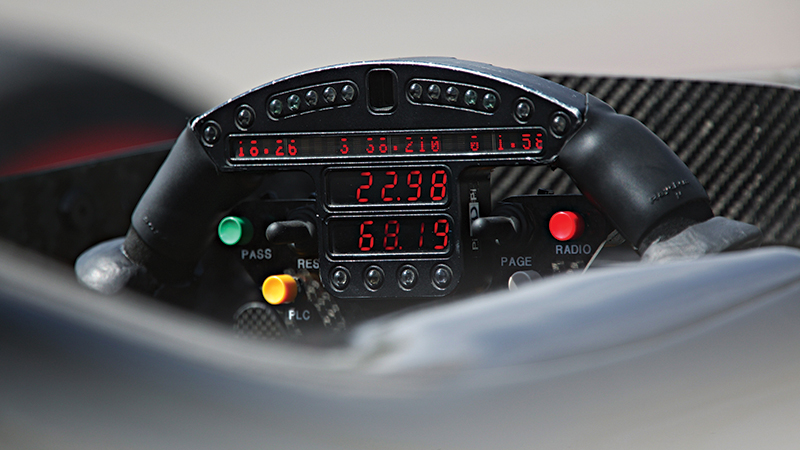CPA 2027: Tech Races Ahead
By 2027, technology is likely to have completely transformed the accounting and finance profession—but CPAs can’t afford to live in fear of a robot takeover.
By Derrick Lilly | Digital Exclusive - 2021

For sci-fi fans, predictions of a tech takeover might trigger thoughts of rebellious robot uprisings the likes of “I, Robot” or “Westworld.” Thankfully, we’re not there yet (and hopefully it never comes to that), but that doesn’t mean smart machines aren’t increasingly permeating and changing our world.
“[E]xpect social robots to become more sophisticated and prevalent in the next few years. The field seems to have reached a tipping point, with bots having greater interactive capabilities and performing more useful tasks than ever before,” says the World Economic Forum in pointing out that worldwide sales of consumer robots is expected to grow to $19 billion by the end of 2025, with more than 65 million robots sold per year.
Consider for a moment that many of us are already using AI at home and work—big tech companies Amazon, Apple, Google, Microsoft, and Samsung have collectively sold billions of consumer devices enabled with their smart assistants (i.e., Alexa, Cortana, Siri, etc.). What we don’t always realize is that these devices, and the other smart machines—phones, tablets, TVs, speakers, doorbells, thermostats, appliances, watches, vehicles, applications, and more—that we’re connected to and communicating with are learning from us—and for us. As we increasingly, and sometimes obliviously, adopt and interact with AI to assist in our daily lives, so too will the business world.
The CPA profession is no exception. Throughout late 2019, EY, KPMG, and PwC announced they would invest roughly $9 billion combined in AI, automation, and data analytics solutions to reshape their firms for the future—each firm is set to spend upwards of $1 billion annually developing technologies and their teams over the coming years. And while not every firm or company has billions or even millions to invest in new and smart tech, you can bet those who are looking to maintain or gain a competitive edge will be committing as much as they can to the solutions that promise success in their markets.
When the Society conducted its fall 2019 Strategic Planning Survey of its board of directors and executive and leadership staff, 96 percent of respondents agreed that by 2027 AI and RPA will permeate businesses of all types and sizes and be utilized in the performance of every function a CPA performs; blockchain will be prevalent in managing large companies’ supply chains and financial systems; and the platform economy will be fully embraced, creating new opportunities where digital business models are favored and underlying computer systems host services that allow consumers, entrepreneurs, businesses, and the general public to connect, share resources, and sell products.
We’re watching all this take shape now. In the corporate world, nearly half (49 percent) of accounting and finance professionals surveyed by Invoiced and CFO Drive said their companies have already automated accounts payable, and accounts receivable (47 percent) and financial reporting (45 percent) aren’t far behind. In 2021, Gartner estimates AI will create $2.9 trillion of business value and 6.2 billion hours of worker productivity globally. And when it comes to implementing digital ledgers, Deloitte’s 2020 Global Blockchain Survey found that 88 percent of business leaders believe blockchain technology is broadly scalable and will eventually achieve mainstream adoption. In fact, market analyst IDC anticipates the U.S. will lead blockchain spending, which is forecast to reach nearly $4.3 billion globally this year—a nearly 58 percent increase from 2019 despite the impacts of COVID-19—and annual global investments in blockchain could surpass $14 billion by 2023.
Simply put, the pace of change—and the pace of AI and automation adoption—will only accelerate from here. It’s actually inevitable as smart machines use their capabilities to get smarter. Intelligent technology scientist Eric “Astro” Teller, “captain of moonshots” at Google’s semi-secret research and development company X, believes the adaptability of technology has already surpassed that of humans, meaning technology will increasingly outpace us moving forward—which will only make us more dependent on it.
What does this mean for CPAs? Accenture predicts automation has the potential to eliminate up to 40 percent of transaction accounting work by the end of 2020. Deloitte predicts accountants using spreadsheets will be replaced by technology that does 90 percent of the work without human intervention. And widely cited research by the University of Oxford warns of a future where accountants and auditors face a 94 percent probability of having their jobs computerized, and tax preparers face a 99 percent probability of being automated.
Intel founder Andrew Grove once said, “A fundamental rule in technology says that whatever can be done will be done.” The takeaway for CPAs is that they must pivot away from tasks headed for automation and embrace a technologist’s mindset to avoid becoming a statistic.
In Formula 1 racing today, the Internet of Things enables hundreds of sensors to collect real-time data on everything from the car’s aerodynamics to the driver’s heart rate, which dozens of race engineers simultaneously pore over to improve performance and construct a race strategy on the fly that, hopefully, ends with a podium position.
CPAs can’t afford to live in fear of a robot takeover—instead, they must be like the Formula 1 teams today, using all the technology and knowledge available to position themselves to win the race. As firms, companies, and consumers pour more energy and investments into technology solutions for everything from simple cashless payments to bookkeeping and tax prep, HR, supply chain management, and more, not only must CPAs implement the technologies relevant for their firms and companies now, they must keep pace with what’s to come for them—and those they serve—if they want to be in the winning position of offering unique and strategic forward-looking guidance.
This is part one of a seven-part series taken from “CPA Profession 2027: Racing for Relevance,” a 2020 Insight Special Feature from the Illinois CPA Society.